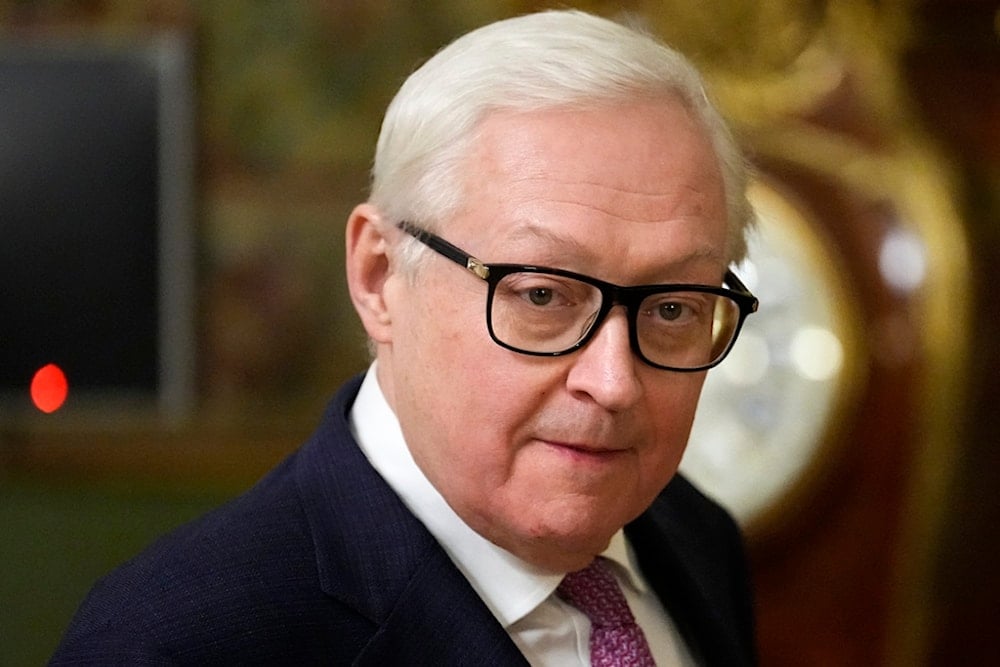Russia may consider missile deployment in Asia-Pacific over US actions
Russia's Deputy Foreign Minister Sergey Ryabkov accuses the US of undermining arms control frameworks, further escalating tensions in strategic regions such as Asia-Pacific.
-

Russian Deputy Foreign Minister Sergei Ryabkov arrives to attend the talks between Russian Foreign Minister Sergey Lavrov and Colombian Foreign Minister Luis Gilberto Murillo, in Moscow, Russia, Thursday, Nov. 14, 2024. (AP Photo/Alexander Zemlianichenko, Pool)
Russia may consider deploying shorter- and intermediate-range missiles in the Asia-Pacific region in response to the US' actions, affirmed Russian Deputy Foreign Minister Sergey Ryabkov, TASS reported.
Speaking to journalists, Ryabkov said that this option remains on the table as a potential military-technical response to US missile deployments in any region of the world.
"Our further steps, including in what concerns our military-technical response, will depend on the deployment of corresponding US systems in any region of the world," the top Russian official stated.
He stressed that the responsibility for the current situation and any potential escalation lies solely with Washington and its European allies, whom he accused of supporting Kiev's "ephemeral ambitions and most criminal designs."
Arms control treaties in question
Ryabkov clarified that Russia's Oreshnik missile, a new intermediate-range system, is not subject to the limitations of the New Strategic Arms Reduction Treaty (New START), as it focuses exclusively on strategic weapons.
He linked this to the collapse of the 1987 Intermediate-Range Nuclear Forces (INF) Treaty, which the US withdrew from in 2019, calling it a "big mistake" by the Trump administration. This withdrawal, he said, removed all restrictions on deploying such systems.
"The Russian president has made it clear that this is a new intermediate-range system. Therefore, since there aren't any restrictions in this sphere, particularly as a result of the first Trump administration's big mistake to withdraw from the Intermediate-Range Nuclear Forces Treaty leading to the treaty's collapse, there are no restrictions on the deployment of such systems," Ryabkov said, adding, "They have nothing to do with New START."
Read more: Russia's nuclear doctrine update signals message to West: Kremlin
Historical context
The INF Treaty, signed in 1987 by the former Soviet Union and the US, banned the deployment of ground-based missiles with ranges between 500 and 5,500 kilometers.
Following the treaty's collapse, Moscow pledged not to manufacture or deploy intermediate-range missiles unless Washington initiated deployments elsewhere.
Ryabkov suggested that this pledge may no longer hold if the US continues its current policies.
Impact on global stability
The Russian official also warned that any escalation resulting from missile deployments would have serious consequences for global stability.
He criticized Washington's "inhumane" policies and accused it of undermining arms control frameworks, further escalating tensions in strategic regions such as Asia-Pacific.
Read more: China calls US 'biggest nuclear threat to the world'

 3 Min Read
3 Min Read









